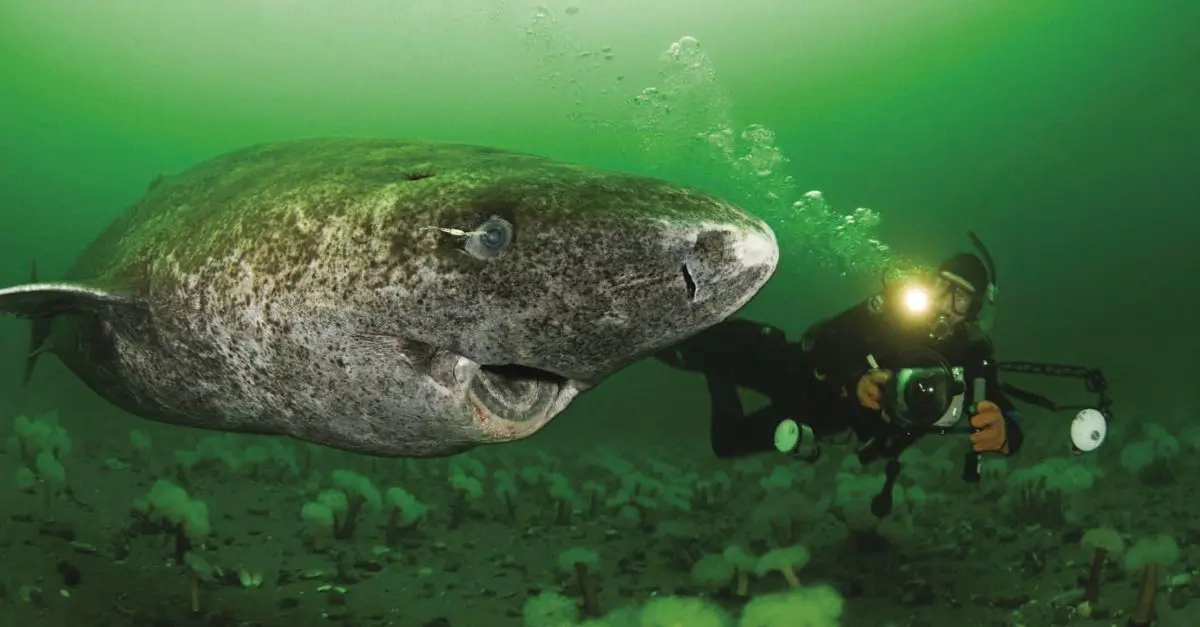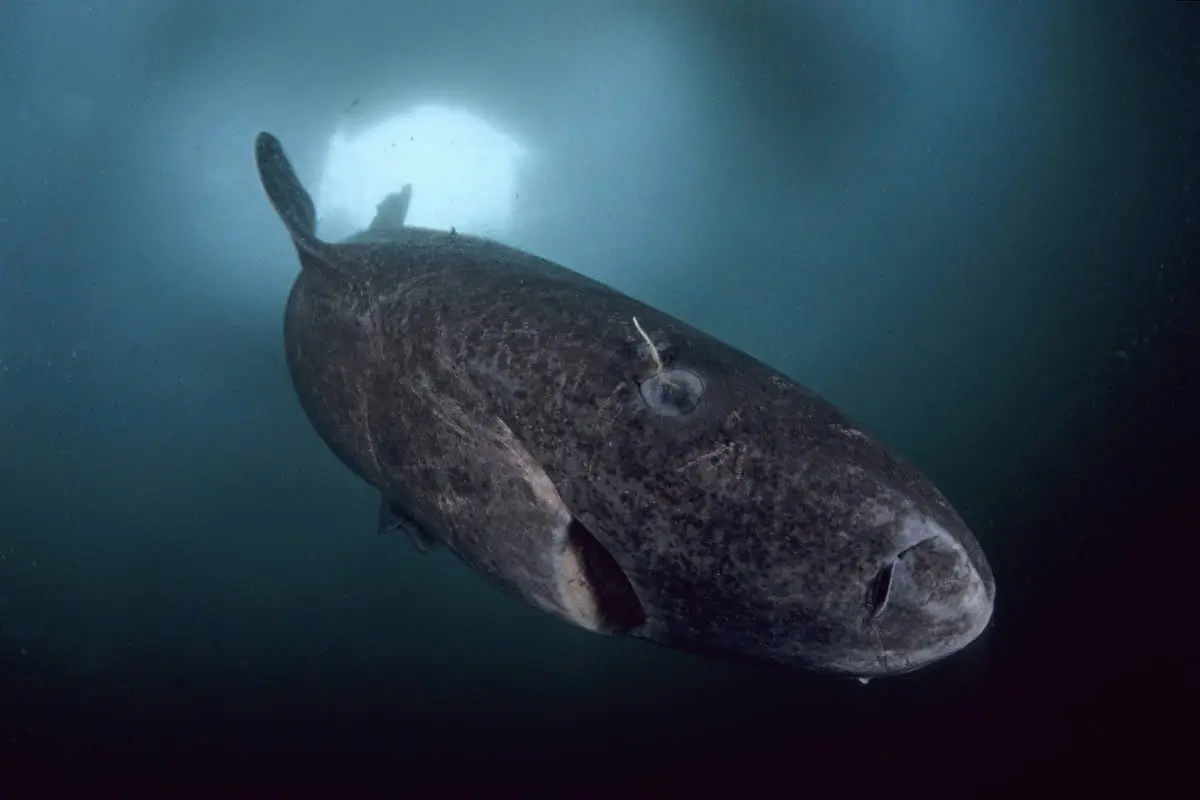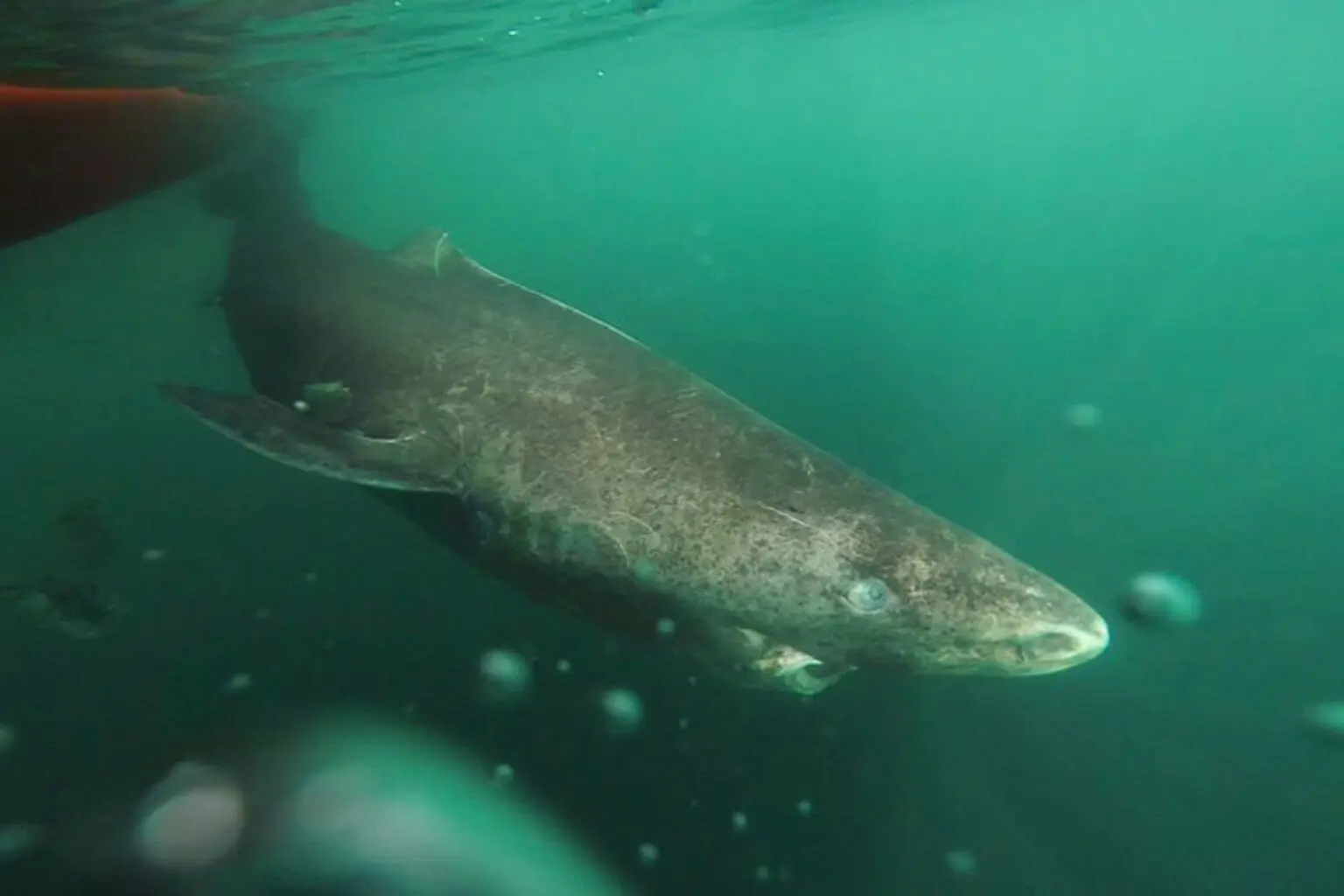
A Lifespan Defying Time
The Greenland shark, a silent sentinel of the Arctic and North Atlantic oceans, has emerged as one of the planet’s most long-lived vertebrates. A recent study, led by marine biologist Julius Nielsen, revealed that these enigmatic creatures can live for centuries, with some individuals reaching an astonishing age of 400 years.

Unraveling the Secrets of Longevity
To determine the age of these ancient sharks, researchers employed a novel technique involving radiocarbon dating of eye proteins. By analyzing the levels of radioactive carbon-14 in the eye tissue, scientists were able to estimate the age of individual sharks. The results were astounding, surpassing previous records held by bowhead whales.
A Slow-Paced Existence
Greenland sharks are renowned for their sluggish lifestyle. They inhabit the cold, dark depths of the ocean, where their slow metabolism allows them to conserve energy and survive in extreme conditions. Their growth rate is incredibly slow, adding only about one centimeter per year. This deliberate pace of life contributes to their extraordinary longevity.

A Mysterious Diet
Despite their slow movements, Greenland sharks are opportunistic feeders. They have been observed consuming seals, often taking advantage of sleeping or deceased animals. This dietary strategy, combined with their efficient energy use, enables them to thrive in their harsh environment.
A Glimpse into the Past
The discovery of such ancient creatures offers a unique opportunity to study the Earth’s history. By analyzing the isotopes in their tissues, scientists can gain insights into past climate conditions and oceanographic changes.
The Greenland shark, a true marvel of nature, continues to fascinate and intrigue scientists and the public alike. Its extraordinary longevity and resilience serve as a reminder of the wonders of the natural world.















